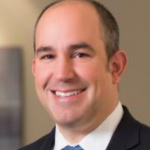 The United States Supreme Court heard oral arguments in Oil States Energy Services, LLC v. Green’s Energy Group, LLC, the case that will require the Supreme Court to determine whether inter partes review (IPR) proceedings before an executive agency tribunal are constitutional, or whether the adjudication of patent validity must take place in Article III federal courts. See Supreme Court seems split on Oil States.
The United States Supreme Court heard oral arguments in Oil States Energy Services, LLC v. Green’s Energy Group, LLC, the case that will require the Supreme Court to determine whether inter partes review (IPR) proceedings before an executive agency tribunal are constitutional, or whether the adjudication of patent validity must take place in Article III federal courts. See Supreme Court seems split on Oil States.
The issue specifically taken by the Supreme Court in Oil States is as follows:
Whether inter partes review – an adversarial process used by the Patent and Trademark Office (PTO) to analyze the validity of existing patents – violates the Constitution by extinguishing private property rights through a non-Article III forum without a jury.
In advance of this much anticipated oral hearing, I reached out to a number of industry insiders with a simple question: What are you thoughts and predictions on Oil States in advance of Supreme Court oral arguments? These pre-argument thoughts and predictions can be found here.
After oral arguments were held in Oil States on Monday, November 27, 2017, I again asked a number of industry insiders what thoughts and predictions they now have after having the benefit of hearing the Q&A that took place between the Justices and the attorneys representing the petitioner, respondent and federal government. Their answers follow, and show that there is little agreement among those watching this case with respect to what the likely outcome will be.
For my thoughts click here.
 Todd Dickinson
Todd Dickinson
Former Director of the USPTO
Senior Partner, Polsinelli
In a pretty wide-ranging session, an amped-up Supreme Court seemed to understand the Constitutional problems embodied in several aspects of IPR hearing during the Oil States argument. Whether they were up to fixing or abrogating them was another matter altogether, and probably not likely. This one could take a while to resolve, however; I wouldn’t look for it soon. One trend which showed up, which would be a shame if it developed further, was a more partisan left-right, progressive-conservative split than the Court has seen in some time on patent cases.
Two interesting tidbits from the argument: Justice Breyer’s allowing that he didn’t know how many years the patent term ran: “Thirty?… I don’t know how long they last…” and the Chief Justice’s comment on the use of the title “Chief Judge” for the head of the PTAB: “You’re talking about the executive employee? When we say “judge,” we usually mean something else.” The latter was in a discussion of “panel packing” by the Chief Judge and Director. Given the Court’s reaction, they should probably check-in with former Commissioner Manbeck (see Alappat) on the political/optical wisdom of doing that very often.
Todd Dickinson is a Senior Partner at Polsinelli, LLC, in Washington, DC, and is the former Under Secretary of Commerce for IP and Director of the U.S. Patent and Trademark Office.
 Neal Solomon
Neal Solomon
CEO of Advanced System Technologies Inc.
Did Congress exceed its power by providing an adjudicative forum for patent validity review in an administrative tribunal? Oil States has several core constitutional issues involving the limits of congressional power, the power of Article III courts, the IP clause, the Fifth Amendment and the Seventh Amendment.
From oral arguments, the case seems to turn on due process and the dramatically different standards of validity review in the PTAB versus the federal district courts. The differences in PTAB standards, including judge biases and conflicts, panel stacking, broad interpretations of obviousness and claim language, lack of presumption of validity, ignorance of the clear and convincing evidentiary standard and limited “discovery,” tilt the results in favor of petitioners, resulting in three times more patents invalidated in PTAB than in the federal courts.
Patent critic arguments maintain that IPRs are a cheap and fast method to correct the PTO’s errors in issuing “bad” patents, though burdens fall asymmetrically on patent holders. But with amendments being very rare, the IPR system has been a red herring for killing – not repairing – patents at abnormally high rates. The IPR system was sold as a way to deal with “bad” patents but it has clearly had the effect of destroying reliability in the patent system, with diminished investment in innovation, a free ride for infringers and the severe reduction of productivity growth.
IPR’s lack consent, due process and Article III court review, requirements of the public rights doctrine, even if patents are taken from their centuries-long private rights jurisprudence upon which the innovation economy depends.
I predict a 5-4 decision for Oil States. Given the precedence and reasoning in Stern, the Court is compelled to favor Oil States. In some ways, this case represents Stern II, the first major case after Stern v. Marshall that raises core separation of powers issues. Therefore, this case will fall squarely in the “public rights” jurisprudence line of cases, setting clear limits on the administrative state. Depending on the logic of the majority decision, this could be a landmark decision.
Neal Solomon is CEO of Advanced System Technologies Inc. A prolific inventor of technologies involving semiconductors, communications, data management, imaging, robotics and healthcare, he holds degrees from Reed College and the University of Chicago.
 John White
John White
Partner, Berenato & White
Suppose I woke up one morning and decided to start a non-profit called “Destroy Only Google Patents In Lucrative E-Business” (“DogPile”). I could raise DogPile money from those with a like-minded do-gooder “public interest” in seeing barriers to entry in these E-business fields swept away and the “promotion of competition” where too little existed. It is win-win, I’d say. It’s tax deductible (or a business expense) for the contributors to DogPile, and they are not a privy to whatever I do, so no collateral effect on them for any outcome except a win. If I succeed, there will be fewer impediments and “bad” patents getting in the way of the public interest of seeing this general “good” accomplished. It would stop Google from its “trolling” of those with whom it competes, and lower prices and stop frivolous litigation. An all-around good idea. Even better, there is no downside at all. I cannot be sanctioned or sued, and DogPile can file as many IPRs as it needs to accomplish DogPile’s objective. The PTO is DogPile’s ally in this project. And, besides, patents are not a “private right”; they are a public right, and what the PTO gives, it can take away whenever it wants or whenever DogPile wants! Forget the fees and disclosure and examination you’ve already been through, it doesn’t matter or even count. If the Supreme Court buys this argument – we all lose. Even worse, it was the Government that made this argument! Simply awful all-around. I’d say 5-4 they are smarter than that – I sure hope so.
Mr. White is a US patent attorney with Berenato & White, and a principal lecturer/author of the PLI patent bar review. Since John began teaching patent bar review courses in 1995, he has personally taught nearly 50% of all practicing patent attorneys and patent agents how to successfully become admitted to the Patent Bar.
 Erik Oliver
Erik Oliver
Partner, Richardson Oliver Law Group
The Oil States oral argument showed the judges quite engaged on the issues and familiar with the briefing. However, obvious signals in support of IPR from the questioning were fewer and further between than I would have expected.
By my scorekeeping, a majority of justices were subtly signalling support for upholding the IPR process. Portions of the argument that I found particularly compelling in support of the SCOTUS upholding IPR included: The concession by Oil States (the petitioner) of the constitutionality of both ex parte reexam and inter partes reexam in the opening of the hearing. To me, this will weaken support among the justices for a ruling invalidating IPRs based on private property, as opposed to public rights, requiring Article III adjudication. Relatedly, Oil States closing rebuttal point about attempting to differentiate IPR from say ITC or NLRB proceedings based on who is “prosecuting [the] action” may similarly help shift the justices who support IPR to frame the PTAB and the PTO as the fundamental party prosecuting the action. The discussion of the history of patent revocation at the privy council at English common law as well as the history of administrative proceedings to me again favored upholding IPRs as constitutional. Lastly, I found some of the cross-references to this case in the oral arguments in SAS to point to keeping the IPR process in place.
In terms of broader patent-law related changes, it seems possible that this case may produce a more vigorous dissent among the justices as to the proper outcome. Likely at least from Gorsuch and perhaps Alito and/or Thomas. Such a dissent might signal a shift away from largely unanimous outcomes in patent cases at the Supreme Court.
I continue to believe that IPR enables more cost effective challenges to weaker patents. Which in turn enables the delivery of products into markets that they might have previously avoided due to the high cost of patent challenges.
Mr. Oliver counsels clients on a variety of patent and business matters, including licensing, buying, selling, valuation, prosecution and business processes. Prior to founding the ROL Group, Mr. Oliver was a Vice President at ThinkFire Services USA, Ltd’s Silicon Valley office.
 Louis Carbonneau
Louis Carbonneau
IP Strategist & Attorney/Patent Broker, Tangible IP, LLC
Based on oral comments made by the court (which is always highly speculative), I see a rather split decision along the liberal and conservative actions of the bench. The wild card seems to be Justice Breyer at this point; his conservative side does not like the PTAB and how it has been politicized, but he is also on record for disliking patent rights even more and his mindset has been contaminated overtime by the “patent troll” narrative, as per oral comments in made in a previous case where this was not even at issue.
So I predict a 5-4 split preserving the status quo. There are two scenarios where I could possibly see a different outcome: i) Chief Justice Roberts or Justice Gorsuch write the decision and no one on the other side cares enough about patents to use their powder on a strongly worded dissent. Or the court surprises everyone and puts a time limit to PTAB challenges, which could mimic the same 2 year window that is already in place for requesting a broadening reissue.
An expert in intellectual property with 30 years of a diversified US, Canadian and international experience in all facets of IP law and business. Louis has been named 5 years in a row as one of the World’s Leading Intellectual Property Strategists by the Intellectual Assets Management (IAM) magazine.

 Stephen Kunin (left) and W. Todd Baker (right)
Stephen Kunin (left) and W. Todd Baker (right)
Partners, Oblon, McClelland, Maier & Neustadt, L.L.P.
In a widely anticipated case, yesterday, the Supreme Court heard oral arguments in Oil States Energy Services, LLC. V. Greene’s Energy Group, LLC on the question of whether AIA administrative trials (“AIA trials”) are Constitutional. While the justices appeared split on whether the AIA trials violate the Constitution’s separation of powers between the authorities of Article I and Article III adjudication bodies of first review to invalidate granted patents, it was readily apparent that Congressional action in concert with USPTO rule and practice changes may be needed to address the concerns raised at oral argument regarding the need to improve fairness and balance in the AIA proceedings. The Article III right to jury trial question appeared to be cabined to the subject of patent infringement and the right to money remedies for infringement.
There appears to be disagreement among the justices whether patents are private or public property rights, especially when viewed under a quiet title theory where the patents have been in force for many years and investment expectations have been settled. The justices seemed unimpressed with distinctions between reexamination proceedings and administrative trials when deciding the issue of Constitutionality. Some justices were sympathetic to the correction of patents argument, limited to unpatentability due to prior art patents and printed publications in IPR, but expressed concern about the lack of fairness in how the PTAB conducts the proceedings. While the justices’ interventions during oral argument were revealing it is difficult to predict the outcome. Stay tuned.
Stephen Kunin serves as an expert witness and consultant on patent policy, practice and procedure. Mr. Kunin served three decades at the USPTO, including 10 years as Deputy Commissioner for Patent Examination Policy. W. Todd Baker is Chair of the firm’s Post-Grant Patent practice group. With significant experience in both patent reexamination and interference cases, Mr. Baker is uniquely positioned to advise clients on post grant USPTO proceedings such as inter partes review (IPR) and post grant review (PGR) proceedings, complementing traditional litigation-based patent validity challenges. Mr. Baker has extensive experience handling all aspects of post-issuance proceedings at the USPTO including reissue applications, ex parte reexamination, IPR proceedings, and appeals.
 Paul Morinville
Paul Morinville
Managing Director, US Inventor
During the Cuozzo oral arguments, Chief Justice Roberts had hard questions about the PTAB. From those questions, it appeared to me that he would take a case. Then Justice Scalia died and Roberts passed on three cases questioning the constitutionality of the PTAB. Immediately upon Justice Gorsuch’s confirmation, Roberts takes Oil States. After hearing the arguments and the questions from the Justices, the split in the court is much larger than the pundits had us believe. Mr. Matal, it will not be 9-0. In fact, it appears to me that the Supreme Court will find for Oil States and will invalidate the PTAB.
I’m not sure how far they will go. There were enough questions that lead me to think that some Justices do not want to go all the way. Perhaps they will only protect pre-AIA patents or find some other way to fix it. But I think that Gorsuch and Roberts will prevail in the internal Supreme Court debate, it will be fully invalidated and all the patents destroyed by the PTAB will be resurrected – as it should be.
Paul Morinville is Managing Director of US Inventor, Inc., which is an inventor organization working in Washington DC and around the US to advocate for strong patent protection for inventors and startups. He is also an inventor and entrepreneur with multiple patents and pending patent applications in the area of Access Management Systems, Cloud Aggregation, Enterprise Software, and Business Process Management Systems.
 Ron Cahill
Ron Cahill
Nutter McClennen & Fish LLP
Following the oral argument in Oil States, it still seems likely that the IPR procedures will stand, although possibly with some changes to ensure compliance with constitutional concepts of due process. A number of Justices were skeptical of the lines the Petitioner was trying to draw around IPRs being an unconstitutional exercise of judicial power by the executive branch, while other Patent Office proceedings, such as reexamination or interference proceedings, are not. When the Petitioner argued that the difference in IPR proceedings that made them problematic was the high level of third party involvement, the Justices came back with other examples of disputes between parties that are resolved by administrative bodies without violating the Constitution.
According to the government, IPRs are nothing more than the Patent Office continuing to ensure that it only issues patents that are novel and non-obvious. Some Justices, especially Justices Gorsuch and Breyer, worried about patentees’ settled expectations and investments made in their patented technology, only to have the government take back the patent. Using the words of the Chief Justice, the government argued that a patentee has to take the bitter with the sweet—in order to be granted a patent, the patentee has to understand that there is some chance that the Patent Office will review it and take it away. Regarding the process, some Justices expressed concerns about applying IPR procedures to patents that had granted before the AIA became law and the ability of the PTO to “stack” rehearings with expanded panels of APJs. While IPRs are likely to stay, issues such as these may need to be addressed in IPRs going forward.
Ron Cahill is partner and chair of the Intellectual Property Litigation practice group at Nutter. A leader in professional associations in the intellectual property field, Ron has chaired an American Intellectual Property Law Association patent law committee on legal standards for obviousness and is a past chair of the Litigation Committee of the Boston Patent Law Association.
 Doug Stewart
Doug Stewart
Partner, Bracewell LLP
The Supreme Court’s decision in Oil States has the potential to reshape the process of challenging patents in the United States. In 2012, the America Invents Act resulted in the creation of the inter partes review process at the USPTO, which has allowed for cost-effective challenges to patent validity with a significant success rate. If the Petitioner in Oil States prevails, the inter partes review process will be curtailed, or even eliminated completely, which will provide a benefit to patent owners in the form of greater security from invalidity challenges. This, in turn, will manifest as increased value for issued patents and will encourage both acquisition and enforcement activities.
A registered patent attorney, Doug’s practice encompasses all aspects of intellectual property and technology litigation and counseling. He also currently serves as chair of the firm’s IP litigation practice group.
 Christopher Loh
Christopher Loh
Partner, Fitzpatrick, Cella, Harper & Scinto
Based on their comments at oral argument, Justices Roberts and Gorsuch appear to favor Oil States’ position, whereas Justices Ginsburg and Breyer appear to favor Greene’s. While Justices Kagan and Sotomayor expressed concerns about the constitutionality of the IPR process itself, those concerns appear to be assuaged by the availability of judicial review for IPR decisions. The views of the other Supreme Court Justices are less clear.
The Seventh Amendment right to trial by jury did not arise at oral argument. Thus, the two key issues upon which the Supreme Court’s decision likely will turn are: (i) the extent to which the Justices view the IPR process either as an Article III adjudication or as an administrative error-correcting mechanism; and (ii) the extent to which the Justices view patent rights as public or private rights. This is not an easy issue for the Supreme Court to decide. There is adequate precedent to support both sides’ positions, and those positions, moreover, don’t fall along typical ideological or partisan lines.
Christopher Loh practices complex patent litigation in the areas of pharmaceuticals, biotechnology and chemistry. He has litigated patent cases involving anti-HIV therapies, anti-hepatitis drugs, antidepressants and statins, and has experience arguing before the United States Court of Appeals for the Federal Circuit.
 Julianne Hartzell
Julianne Hartzell
Partner, Marshall, Gerstein & Borun
The Court’s questions indicate a divide among the Justices seeking to balance the rights of a patent owner in an issued patent and the scope of Congress’s ability to establish limits on that right. The initial questioning of counsel for Oil States led by Justices Ginsberg, Kagan, and Roberts, focused on whether there is a significant difference between IPR and ex parte or inter partes reexamination. Those relatively long-standing proceedings that allow the patent office to reconsider the right to an issued patent appear to be accepted by all as constitutional, so the Court seemed to want to identify the dividing line where such a procedure would become unconstitutional.
Counsel for Oil States agreed with Justice Kennedy that Congress can limit the patent term or shorten the patent term of an issued patent, but did not agree with his characterization that accordingly a patent owner has limited expectations as to the scope and validity of its patent rights. Justice Kennedy’s questions primarily seemed directed to the patent owner’s expectations, including whether the patent grant had been made subject to the conditions of novelty and non-obviousness. This line of questioning could potentially track the argument made in the IPLAC (Intellectual Property Law Association of Chicago) Amicus brief that the decision in Oil States should be limited only to a determination of the constitutionality of IPR as it relates to pre-AIA patents because the expectations of the owners of patents issued after enactment of the AIA would understand those rights to be subject to IPR review.
Justice Breyer focused on concerns about how to protect the investments made by a patent owner, but as pointed out by counsel for Greene’s Energy, issued patents have always been subject to later validity challenges throughout the life of the patent (both in the Patent Office or in the courts). So, those concerns do not seem to be to be a problem created by IPRs. With respect to the Article III argument, Justice Roberts was particularly harsh in calling out Greene’s Energy Group’s counsel’s reference to the “chief judge of the PTAB,” with Justice Roberts emphasizing that this individual is an executive branch employee and that “when we say ‘judge,’ we usually mean something else.”
Justices Ginsberg and Kagan immediately pointed out that administrative law judges are recognized all over this country. Several of the Justices also expressed concern about the PTAB’s history of panel-stacking, as an indication of either unfairness in the IPR process or evidence that the process allows for potential abuse by the executive branch. If the Court’s ultimate decision relies on this point, that would appear to be an unforced error by the PTAB. While one must always be hesitant to reach any conclusions based on judicial questioning, it seems safe to assume that Justice Gorsuch believes that IPRs are unconstitutional.
From my perspective, I don’t find the argued distinction between IPR and the previous reexamination proceedings to be persuasive and find myself more convinced that Congress has the right to create a procedure that allows the office that grants patents to reconsider the decision to make that grant based on additional information, regardless of the source of that information. It is not necessarily the existence of IPR procedure providing a methodology to challenge the validity of an issued patent at the PTO or the ability to conduct limited discovery and have a hearing in an IPR that is truly problematic for patent owners. Instead, it is the lowered burden of proof to invalidate a patent in an IPR and the constrained ability to amend challenged claims that has had the most damaging effect on patent rights. Since that is where I see the patent owner’s true issues with IPRs and that is not what is challenged here, I don’t think the Article III challenge raised by Oil States should succeed.
Julianne Hartzell is a partner with Marshall, Gerstein & Borun, where she Chairs the firm’s Medical Device Practice Group. Ms. Hartzell has significant experience in intellectual property litigation, including cases involving patents, trademarks, copyrights, and trade secrets.

![[IPWatchdog Logo]](https://ipwatchdog.com/wp-content/themes/IPWatchdog%20-%202023/assets/images/temp/logo-small@2x.png)

![[[Advertisement]]](https://ipwatchdog.com/wp-content/uploads/2023/01/2021-Patent-Practice-on-Demand-1.png)
![[Advertisement]](https://ipwatchdog.com/wp-content/uploads/2024/04/Patent-Litigation-Masters-2024-sidebar-early-bird-ends-Apr-21-last-chance-700x500-1.jpg)

![[Advertisement]](https://ipwatchdog.com/wp-content/uploads/2021/12/WEBINAR-336-x-280-px.png)
![[Advertisement]](https://ipwatchdog.com/wp-content/uploads/2021/12/2021-Patent-Practice-on-Demand-recorded-Feb-2021-336-x-280.jpg)
![[Advertisement]](https://ipwatchdog.com/wp-content/uploads/2021/12/Ad-4-The-Invent-Patent-System™.png)







Join the Discussion
34 comments so far.
The Time Is Now To Act
December 2, 2017 03:50 pmCorrection to last paragraph:
The American system *cannot* take even one more year of the current state of affairs.
The Time Is Now To Act
December 2, 2017 03:46 pmEd- so, for Breyer to kick off commentatory (albeit kicking about both sides of the subject) of time limitation of challenge and contribute to the thread of investment loss is, on balance, a gain for Oil States.
For Kagan, to hit Mr. Stewart repeatedly over panel stacking is also a gain. One might argue that the questions are ancillary but not if the true question is:
‘What is best for America and our continued leadership in IP and Commerce?’.
That the truth of the past, current and future economic destruction of rampant post grant patent review takings is being spoken by Sen Coons, Iancu and SCOTUS in separate forums is significant.
‘We need to be careful not to throw the baby out with the bathwater.’ – Director Nominee Iancu during questioning in 11/27/17 confirmation hearing
IPRs are unconstitutional. Period.
The justices are searching for a way to say it. I’d love for them to take the best path as what has been brought over the past 10 years is terrible and, best case, can only somewhat undone.
The American invention system can take even one more year of the current state of affairs.
Edward Heller
December 1, 2017 05:27 pmJust finished listening to the oral argument. What struck me the most was Breyer at the very end openly telling Ho that here argument that the problem with IPR (as opposed to reexamination) was that this were two parties litigating (a private right) was nonsense.
Breyer was sold, however, on the need for some reliability in patents in order that investments be made. Thus, strangely, he may actually side with Gorsuch, but only in particular cases where reliance is shown?
But I now do not see that Ho’s basic argument will bear any fruit at all because it takes the Supreme Court in a direction they definitely do not want to go, declaring unconstitutional administrative tribunals that permit private parties to litigate in order to resolve an issue of (quasi?) private rights where agency expertise is deemed useful. Think broadcast licenses for one. Workers Comp (Crowell v. Benson) for another.
If this is issue that must be resolved by the Court, ignoring English history, ex parte Wood, mentioned several times by reference to Story, and McCormick Harvesting, I see now see it as a tossup. It is clear, however, that most of the court really understood the issues.
step back
December 1, 2017 03:37 pmEG @30
It’s truly sad that we have to go back to the most fundamental precepts of patent law.
Without a patent law system that “secures” exclusive rights to the first to invent or file, inventors do not truly have an “exclusive” property right.
They do however have a right to exclude others from probing their minds to learn of whatever secrets (including trade secrets) they possess.
Without a strong and secure patent system, each inventor is usually best off keeping his secrets to himself, hidden in his or her little rabbit hole and never revealed to anyone else. Indeed why even bother inventing in the first place if that act is going to be troublesome?
We have seen throughout history that societies which encourage suspicion and secrecy and hiding of know how end up in a not so nice place. Sadly, America is sailing in that direction thanks to them who don’t like inventors very much.
EG
November 30, 2017 12:37 pmHey Gene,
Having read Ron Katznelson’s excellent post, I would revise the first sentence of my last full paragraph as follows: “As others have said, Ho could have (and should have) also gone to the Patent Clause itself, and pointed out that the inventor, who inherently has a private property right (as acknowledged by case law) to that invention which he/she invents (secured initially by trade secret), merely exchanges the MECHANISM for securing that private property right by disclosing the invention in the patent application (as part of the quid pro quo) to obtain a patent (also established for at least 200 years, including SCOTUS, to be “personal (private) property”).
angry dude
November 30, 2017 10:28 amPro Se@26
Hear you, dude
“The fate of all mankind I see is in the hands of fools”
Welcome to 21st century schizoid USA
exer
November 30, 2017 10:23 am“Why couldn’t the lawyers go to the EPA or social services and destroy those government systems.”
You act like they haven’t.
But please remember, there are usually lawyers on both sides of the issue. Many of us here would like to keep a strong patent system for the well-being of our country and economy.
Anon
November 30, 2017 10:22 amPro Se,
With all due respect, you use far too broad a brush by tarring “the legal community.”
Certainly, there are members of the legal community that should be tarred.
But just as certainly, there are members (both anonymous, like myself, and named, like John White, Gene Quinn and others) that continue to fight to save the patent system from the desired destruction.
I would point out as well that it is NOT “the legal profession” that in and of itself generates the animus and philosophies that are anti-patent.
Such come from many directions (and as I have noted previously, I can group at least two such directions as from the Left and from the Right).
By this, I mean that the “Left” are those whose philosophies disdain property (and especially personal property). This group’s view are often presented by academia (and those attorneys so tainted by academia).
By this, I mean that the “Right” are those whose philosophies disdain property (or the challenge of property) from others. This group’s view are often presented by “Big Corp” – the Efficient Infringers – who would rather compete on non-innovation factors (and by those attorneys so tainted as being mouthpieces for “Big Corp”).
But keep in mind, that even those attorneys so tainted are merely presenting the views of those that pay for that representation. As perhaps more easily seen in criminal law contexts, attorneys MUST not be tarred with being associated with those that they represent. Our larger sense of Justice demands this separation.
That being said, I do not excuse attorneys who “go beyond the pale” in their representation. By this, I mean that attorneys who engage – but who refuse to engage fully and with inte11ectual honesty – merit ALL of the scorn that those whom they represent also merit. Those that treat forums – such as this one – as somehow not requiring the same ethical considerations as would be merited in a court and who would twist facts, law an history to suit their desired Ends are NOT to be considered representative of all us in “the legal community.”
Pro Se
November 30, 2017 09:23 amAs an engineer that build new and innovative products, I am just offended that the legal community was able to infiltrate and highjack the tradition of U.S. patenting and turn it into this mess of a situation.
Why couldn’t the lawyers go to the EPA or social services and destroy those government systems.
My fate as a technologist lie in the hands of a group that never built a darn thing.
Anon
November 30, 2017 08:10 amMr. Heller,
It appears that our previous conversation pertaining to a possible existence of a new public right of challenge separate from a patent right was not picked up in the oral arguments.
I am heartened at its absence.
Anon
November 30, 2017 08:05 am(that was directed to the “stick in the craw” paragraph)
Anon
November 30, 2017 08:04 amYour last paragraph does not carry the weight that you think it might.
For several reasons.
The Congressional (purposeful) lack of standing makes it clear that the second party need not (at all) rise to the level of your “traditional” second party in contest.
The fact remains that once started, and with a withdrawal of that non-traditional second party, the government has every right to continue the proceeding (at least as far as the Article I forum) – it remains to be seen whether the Court would permit the run-around manufactured standing for an Article III continuation for those cases that only the government remains and pursues the issue into the secondary forum.
Several of the Justices seemed perfectly fine with the Executive branch administrative agency intrusion (and the prospect of a “next step” of Congress completely removing patent matters from the Article III forum was not floated as a hypothetical to remind the Court of a possible logical extension of changing the nature of a patent into a “public right”).
Night Writer
November 29, 2017 09:41 pmOne thing I will bet any amount on is that this will be a divided opinion Ned.
And that Gorsuch and Ginsburg will be on different sides. That is a sure thing.
@7 EG: “and is making his judgments based upon the Constitution and law, not a personal view, like Breyer’s, that ‘patents are bad.'”
Ginsburg is about as close to a criminal on the court as you can get. She will make up her mind based on what she thinks of patents and generate nonsense to back it up. Sotomayer will vote with Ginsburg. Breyer will vote with Ginsburg.
You can be sure: Ginsburg, Sotomayer, and Breyer (he yapped his nonsense a bit that sounded like the foul thing might get it, but Breyer just feels patents are bad ’cause he just knows and he is the smartest boy in the world) vs. Gorsuch.
Night Writer
November 29, 2017 07:25 pmThe whole key to this after it set for a while is whether this is a corrective measure or a dispute between two non-governmental parties. I think the latter means IPRs are unconstitutional. That is why Sotomayer said that it was really governmental because if a party drops out the PTO can continue the IPR.
But, I think if IPRs stick in the craw of the justices it will be because it is a dispute being resolved between two parties.
Edward Heller
November 29, 2017 06:03 pmAnon, Gorsuch tried to engage Ho on the issue that patents were property, a private as opposed to a public right. She demurred.
Anon
November 29, 2017 05:48 pmMr. Heller,
How does the “Ho Gambit” deal with the question of whether or not patents are personal property or public rights?***
I see the view that you are projecting – a Solomon-like “split the baby.” But if you recall, splitting the baby was only to provoke one side of the binary decision (of which, I still believe that the personal property/public rights issue presents).
***Note that I have not yet been able to review the full oral argument, do not know if the personal property/public right divide was explored, and also realize that oral arguments are NOT indicative of any final holding or rationale for a holding that the Supreme Court may finally “bless” us with.
Edward Heller
November 29, 2017 04:49 pmTernary, that was why Oil States conceded the point on reexaminations — to allow for PTO reconsideration of its own mistakes to deal with “bad” patents. IPRs are just a step too far.
The issue of the AIA repealing the access to a court review of reexaminations should also have been raised by Oil States. But let us hope Ho’s concession bears some fruit.
Ternary
November 29, 2017 04:44 pm“Preserve America’s Capacity to Innovate. The American economy’s innovation capacity, although resilient, is not foreordained.” Page 19, A Patent System for the 21st Century, National Academy of Sciences. 2004
This report was the cradle for IPRs. Its somber concerns appear to come true, ironically by its own involvement. I see no 9-0 against IPR, mainly based on the widely accepted notion that (too many) patents limit innovation and that obviousness in patented inventions is rampant and that the economy has to be protected against this. IP as private property is subordinate to certain economic interests. Perhaps 5-4 if we are lucky. If 9-0 (or even 6-3) I will happily bow to Mr. Heller’s superior insights.
Edward Heller
November 29, 2017 04:12 pmMr. Poland, All of the liberals that get to vote here signed on to the dissent in Stern v. Marshall. What was its most important consideration among the factors to be considered listed in that dissent? Whether and to what degree the administrative tribunal is within the political branches. You see, the liberals are very concerned with due process and fairness.
Edward Heller
November 29, 2017 02:45 pmCurious, I think the court will be persuaded that post-grant procedures will pass muster IF an examiner is “in charge.” This will make such proceedings like the ITC. That is the clue I got from one of the libs saying that Ho was wise to concede that reexaminations were constitutional.
Roberts likes 9-0 rulings if possible. I think he can get it here.
Curious
November 29, 2017 02:36 pmOT — I listened in to the Iancu confirmation hearing. He was cagey in responding to a few pointed questions. However, unlike Lee, who had an unstated (but definite) disdain for the patent system, Iancu believes in patents. All in all, I suspect there won’t be any issues with his confirmation — maybe a couple of weeks from now?
BTW — Senator Coons is definitely on the side of inventors. His support should be applauded.
Curious
November 29, 2017 02:30 pm9-0 against IPR
THAT is a bold prediction. Unfortunately, I have been disappointed by SCOTUS before, so I am very warily optimistic. The big difference from the past to now, however, is that of the conservative wing of the Justices, Scalia was probably the least interested in promoting patents whereas Gorsuch (at least outwardly) appears to be a champion of the patent system. This change could make the difference.
I cannot imagine any of the hard-line conservatives wanting MORE government intrusion into settled property rights in the form of IPRs. I guess it’ll come down to whether Gorsuch can bring in Kennedy and/or one of the liberal Justices.
PolandSpring
November 29, 2017 02:19 pmEdward Heller: Why not 10-0 while your at it?
Edward Heller
November 29, 2017 01:14 pmWhile I really didn’t like the concessions made by Oil States, it did seem that the concession was intended to gain the votes of those on the court who have significant concerns with the lack of due process accorded patent owners in IPR while allowing the PTO to still have jurisdiction to correct its obvious mistakes through reexaminations. If the strategy is successful, it may draw one or may be two otherwise liberal votes towards holding IPR are unconstitutional.
Given this out, the court may actually be unanimous that IPR are unconstitutional while allowing multiple concurring opinions expressing different reasons why.
Had Oil States taken the hard-line approach, insisting that the executive had no business invalidating issue patents even with the authority of Congress behind it, Oil States probably would have been assured only of four votes, with Kennedy being the wildcard. But the current strategy allows the court to be unanimous.
9-0 against IPR.
angry dude
November 29, 2017 12:24 pmwtf cares ?
the trust is broken and it will take long time and enormous efforts from all branches of US government (much much more than canceling IPRs and canceling EBay) to restore that trust … IF it ever happens
The Time Is Now To Act
November 29, 2017 09:48 amEG- ‘those’ PTAB apologist pro destroy the patent system commentators are trying to brush under the rug what Gorsuch said during oral arguments re McCormick.
Namely, the court already decided Oil States in McCormick.
Drunk on money from the infringer lobby, counsel is merely hungry for the next infusion and stumping to that end. IPR = cheaper products? WOW.
Every person who cares about the future of America should be on daily bended knee praying Gorsuch’s voice holds sway.
PTO-Indentured
November 29, 2017 09:31 amWhat’s at stake…
Ousting of PTAB, or…
AIA = America’s Infringing Aristocracy
The Best US Patent System Money Could Buy
EG
November 29, 2017 09:31 amHey Gene,
What I find shocking in the comments above by the industry insiders is no reference to the key case in Oil States: McCormick Harvesting. As Ron Katznelson has said (correctly) on a different blog, SCOTUS spoke “loud and clear” in McCormick Harvesting that its holding is based upon a CONSTITUTIONAL “separation of powers” problem with allowing the USPTO to cancel/invalidated granted patent rights (i.e., “would be in fact an invasion of the judicial branch of the government by the executive”). There is not getting around that statement in McCormick Harvesting, no matter how much the naysayers try to argue otherwise. Indeed, Gorsuch showed at oral argument.understands exactly what the basis is for the holding McCormick Harvesting. Indeed, I was highly impressed with Gorsuch’s questions which, unlike the snide remarks and “lost umbrella” story by Breyer, shows Gorsuch has done his homework and is making his judgments based upon the Constitution and law, not a personal view, like Breyer’s, that “patents are bad.”
In my opinion and others, Oils States’ advocate (Ho) made serious tactical error in saying that, versus ex part reexam, inter partes reexam “was a closer case,” but being an “examination,” was different from AIA IPRs which are “adjudicatory.” Like others have suggested, I would have thrown inter partes reexam “under the bus.” The key distinction is waiver of constitutional rights and especially who initiates the procedure within the USPTO. Admittedly, reexam is an “examination” process while IPRs are an “adjudicatory” one. But the key distinction here is whether the patent owner voluntary initiates the procedure (as certainly can happen in ex parte reexam-I would also argue that third-party initiated ex parte reexams are an entirely different story). In other words, by initiating ex parte reexam, the patent owner can voluntary waive its constitutional rights on having the validity of its patent determined in an Article III court. By contrast, IPRs (as well as inter partes reexam) are not initiated by the patent owner, nor can the patent owner opt out of IPRs (or inter partes reexam) without risking having their patent rights invalidated. That makes the patent owner’s participation in IPRs totally involuntary in terms of not waiving its constitutional right to have the validity of its patent adjudicated in an Article III court.
That aspect of “voluntary waiver” would have also responded to Kennedy’s hypothetical that “we will grant you a patent on the condition that you agree to this procedure, [i.e., IPRS]. Again, as even Kennedy would understand, you can’t be forced to accept such condition which effectively involuntarily waives your constitutional rights. Kennedy followed that question up with another one (noting it was a “basic question patent lawyers would probably know the answer”), namely “could Congress say that we are reducing the life of all patents by 10 years?” (I have sneaky suspicion that Kennedy knew that Ho was not a “patent lawyer”). Ho’s response “yes, I think it would” (further stating “that goes to the limited times requirement”) isn’t the answer I would have given. Constitutionally, Congress could not decrease the patent term for an existing patent right. As I, a “patent lawyer,” would know (and Ho apparently didn’t know), Congress itself is cognizant of this restriction, as evidenced when it last changed the patent term in 1995 to 20 years from filing date, but carved out an exception that, for applications filed before the effective date of that change, the old patent term of 17 years from issue date would remain. (Indeed Roberts hinted that way by pointing to the “takings clause” of the 5th Amendment.)
As others have said, Ho could have (and should have) also gone to the Patent Clause itself, and pointed out that the inventor exchanges one property right (i.e., trade secrets, also acknowledged by case law to be “personal property”) for the opportunity to get a different property right (i.e., a patent, also established for at least 200 years, including SCOTUS, to be “personal property”). That bargain (i.e., the bargain between the inventor and the U.S. government) which is implicitly within the Patent Clause is known as the “quid pro quo.” In fact, the Patent Clause (and its close cousin, the Copyright Clause) is the only place in the original Constitution which talks about “securing rights” to the individual, be they inventor or author. The constitutional “quid pro quo” implicit in “securing” those “rights” is an important restriction on Congress changing patent term (or anything else that significantly diminishes the patent right) as it also changes the original bargain (i.e., “quid pro quo”).
We can only hope that at least 4 other Justices of SCOTUS see this case like Gorsuch obviously did.
Patent
November 29, 2017 08:14 amI think a very important point was missed . Rexams when enacted had right to trial under 145 but i recall the AIA taking that away. So i would say present reexam wouldhave problem as much as IPRs . The SCOTUS focus was not on levels of procedural distinction. IMO counsel missed it by not saying 3pr filed reexs go down too. IPR also have standing /estoppel problem with no quid pro quo for patent owner.
Anon2
November 29, 2017 07:30 amAnon@2
To many Oil States is just another bump or blip in a road meandering between the all powerful state and unfettered individual freedom on its search for the golden mean or the perfect pragmatic compromise or perhaps just another undulation in a Hegelian dialectic or an unfathomable Epicurean swerve in a unintelligible buzzing and blooming “I know not what” which mere mortals are foolish to attempt to know or guide.
What got us here is bad philosophy, bad ethics and politics, Dewey, Marx, Kant to name but a few, but I do not think we are witnessing a mere anonymous rock of the edifice of America crumbling to the ground, we are seeing something akin to its keystone or Her spine. Make no mistake that She has been sickly and dying for some time now, her once Life radiating body now morphing in preparation for the impudent tyrant to take her place, a Nanny for adult children, taking away their “dangerous” rights to stop them “hurting” themselves, disclaiming (for now) “Might makes right” but that Force is the only Way that “works”.
Oil States deals with intellectual property, creations of men’s minds and the creator’s inalienable rights to them. This nexus, this crucial combination… when America turns her back on both of these, man’s mind and his rights to the fruits of his own creation, it is not merely another gasp of agony in her long night of decline, but her last sharp breath signifying her true and final death… once animated with Grace and Hope by a Life sustaining Constitution at her heart, her lifeless undead corpse, the Administrative State will be animated by the lice of all forms of vice, weakness, and wickedness, a parody of life, a grinning skull.
Anon I think this is it. IF freedom and an America as it could have and ought to have been is ever to be found again… I cannot say when or where but I think it is clear, almost by there mere fact we are here, and by what will be decided, that really it is ALREADY OVER. In America today you have no inalienable rights, you live by permission of the State, at her pleasure and in measure to your serving the so called Public Good.
In a very real sense then, my postings are nothing but sound and fury signifying nothing. I’m sure some will be happy to be left in peace… and as a parting remark to them I say please, by all means, go back to watching the undulations and swervings of the unfathomable.
Bemused
November 29, 2017 07:21 amAnon@2: Very well said.
Night Writer
November 29, 2017 07:07 am@2 Anon. I agree.
Anon
November 28, 2017 09:22 pmI recommend a deep, long look in the mirror for all counsel involved here and a recalling of the fundamentals of the patent bargain,
Some of the comments above reflect a deep abiding recognition, while others show a level of non-recognition that borders on the word “disdain.”
Make no mistake – make no excuses. Where you come down on the very essence of patents here is what is being reflected in the very real battle there in the Court.
PTO-Indentured
November 28, 2017 09:15 pmIPRs More Cost-Effective?
IPRs are not cost effective if they — more than any other single cause — are destroying the US Patent system, US patent valuations, US entrepreneurial investment, sustaining ubiquitous ‘Efficient Infringment’.
Small consolation to tout: ‘Look how much individual court case costs can go down’ — when the US patent system nose-dives to a 3rd-world ranking as a result.
Cost/Benefit needs to factor in train-wreck damage done